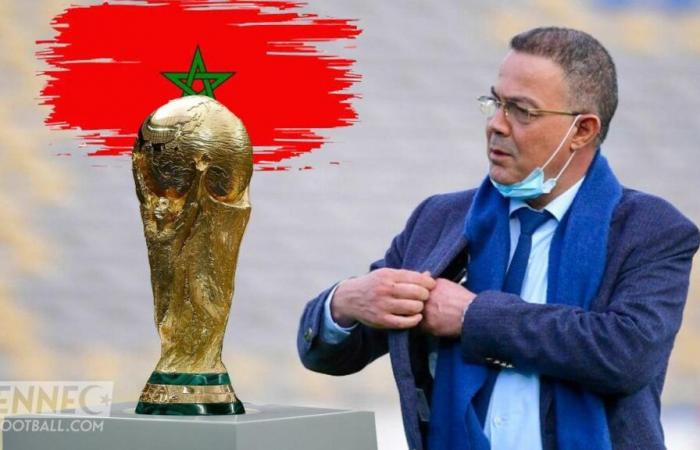Algeria Football– In a collaborative framework aimed at strengthening organizational capacity for the 2030 World Cup, a senior official from Qatar’s Supreme Committee for Projects and Legacy (QSAC) recently participated in a workshop titled “Knowledge Transfer” in Marrakech, in Morocco. This workshop, organized as part of the Qatar-Africa Business Forum, is part of the Qatar-Morocco 2024 cultural program, and aimed to share the experiences acquired by Qatar during the organization of the 2022 World Cup.
This event allowed the Qatari committee to present the main stages of preparation for the historic tournament, which marked the first World Cup organized in the Arab world and the Middle East. According to officials present, the 2022 World Cup has been hailed by the football community as one of the most successful editions in the modern history of the tournament. Qatar thus had the opportunity to detail the challenges encountered and the lessons learned from this experience, and shared crucial insights with the Moroccan representatives involved in the preparations for the 2030 World Cup, of which Morocco will be one of the hosts alongside Spain and Portugal.
The key points of the workshop focused on the essential areas of preparing for an event of this scale. Qatar highlighted its world-class infrastructure, including World Cup stadiums, training grounds, accommodation, as well as transport facilities set up for the event. Emphasis was also placed on organizing volunteers and managing guests, two essential aspects for the success of any large tournament. Additionally, the discussions covered the legal regulations and necessary reforms that enabled Qatar to host a global event seamlessly, while ensuring an exceptional experience for spectators and participants.
This exchange of knowledge is particularly relevant in light of the preparations for the 2030 World Cup, an event that will mark a turning point for Africa and the Arab world. This will be the first World Cup organized in North Africa and the second on the African continent after that of 2010 in South Africa. Morocco, Spain and Portugal are preparing to host this competition, and the lessons learned from Qatar will undoubtedly be used to refine planning and execution strategies to ensure the success of the event.
The Arab World will therefore continue to mark the history of football, with two successive World Cups on its soil, after the resounding success of Qatar in 2022. Morocco, in particular, will benefit from Qatari experience in building the necessary infrastructure , welcoming teams and spectators, as well as activating legacy projects to ensure that the benefits of the World Cup last well beyond the event itself.
The 2022 Qatari experience has been praised not only for its impeccable organization, but also for its ability to bring nations together and deliver an unforgettable spectacle. There is no doubt that the lessons learned will be valuable to Morocco and its neighbors in their efforts to host the 2030 World Cup, an ambitious project that is already shaping up to be a turning point in the history of world football.
Also read:
“Mysterious”: the Algerian team intrigues Germany






